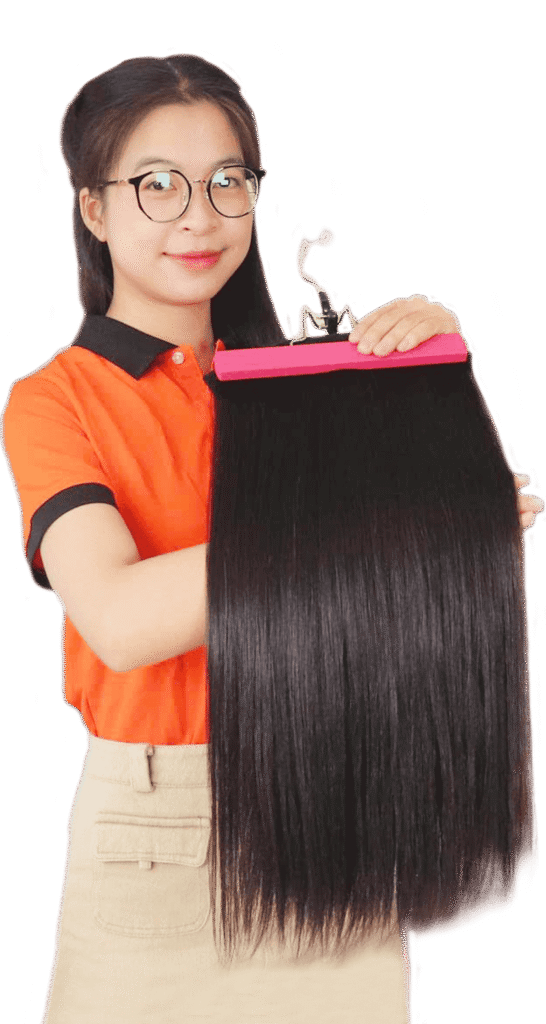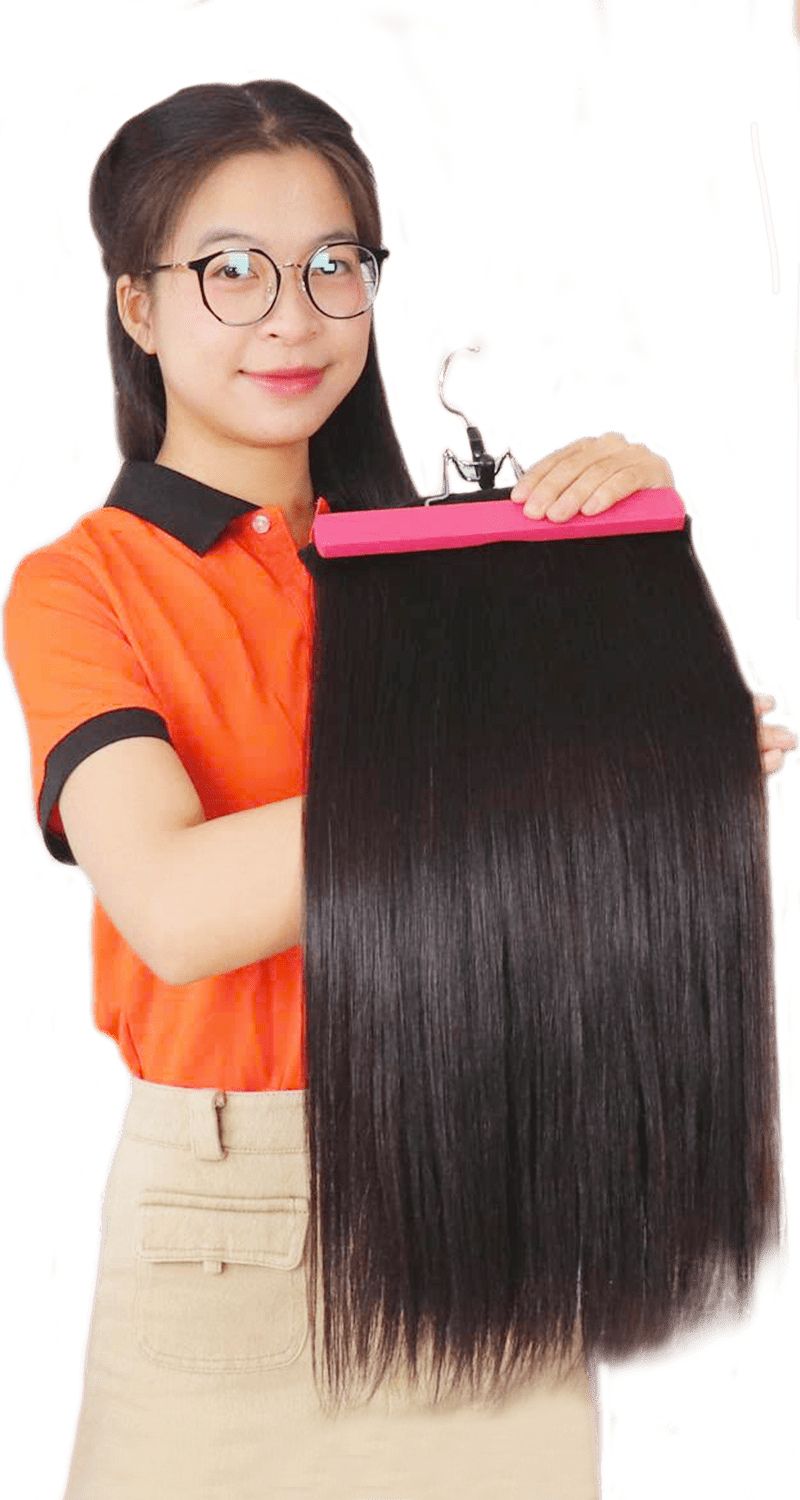Are you experiencing an incessant itchiness on your scalp, accompanied by discomfort and irritation? Before you dismiss it as just another annoyance, have you considered that your hair extensions might be the culprit? Hair extensions, while a popular choice for enhancing length and volume, can sometimes lead to unexpected side effects, one of which is an itchy scalp. In this blog post, we’ll delve into the common reasons why hair extensions causing an itchy scalp, how to identify if your extensions are the root cause of your discomfort, and most importantly, what steps you can take to alleviate the itchiness and maintain a healthy scalp while still enjoying the benefits of hair extensions. Let’s unravel the mystery behind the itch and find solutions for a happier, itch-free scalp!
I. Why Are My Hair Extensions Causing An Itchy Scalp?
Numerous factors could lead to scalp irritation from extensions. It’s quite common for individuals to encounter itchiness or mild irritation when using hair accessories. Some primary causes of itchy scalp while wearing extensions are:
1. Allergic Reaction
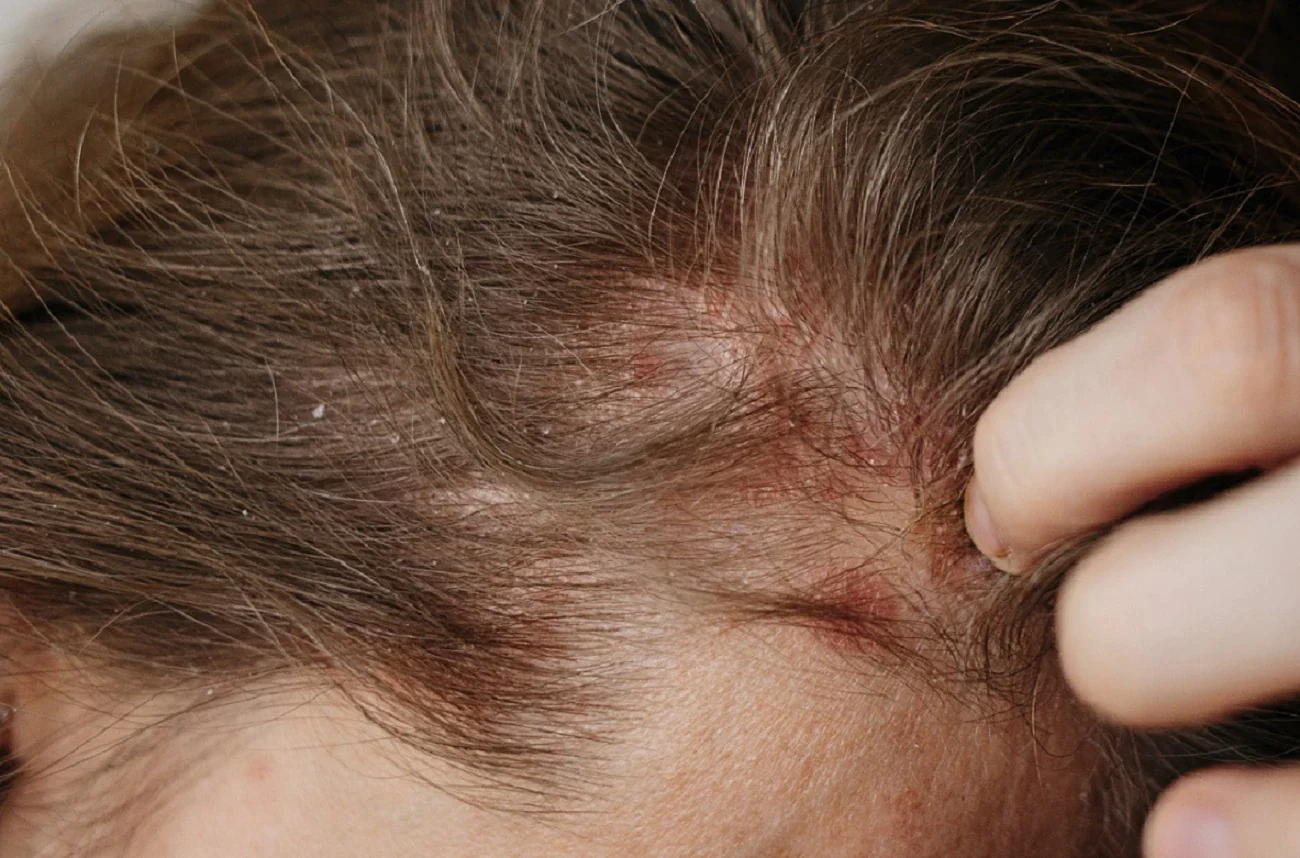
Some individuals may be allergic to certain materials used in hair extensions, such as adhesives. This allergic reaction can manifest as itching, redness, or irritation on the scalp. If the problem persists or becomes more severe, take them out or have them removed and consult with your doctor or dermatologist.
2. Improper Installation and Maintenance
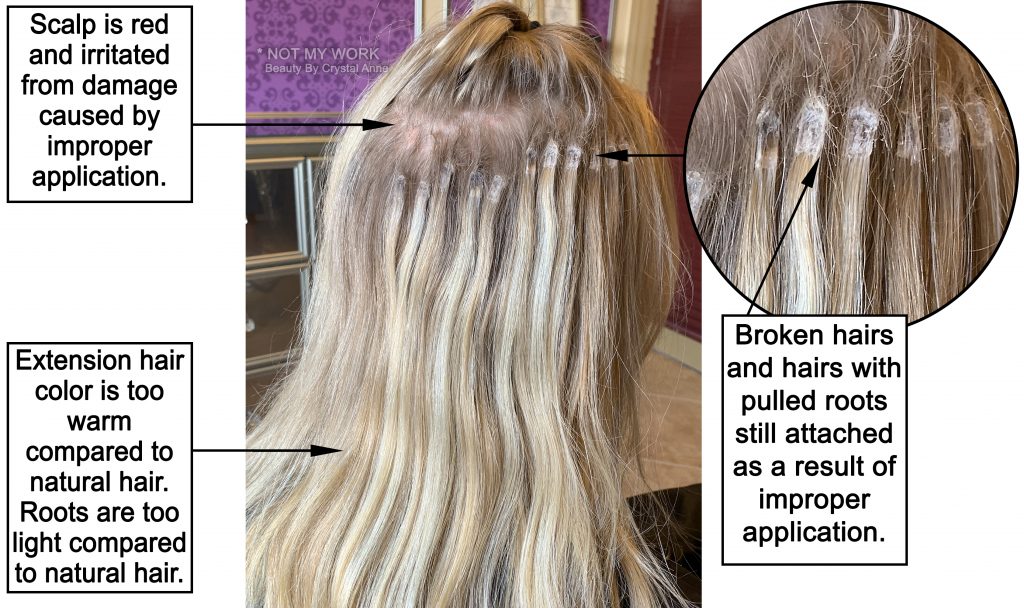
If the hair extensions are installed too tightly or if the adhesive used is irritating to the scalp, it can lead to discomfort and itching. Besides, failure to properly care for and clean the hair extensions can lead to the accumulation of dirt, oil, and bacteria, which can cause scalp irritation and itching.
3. A Sensitive Scalp
Sometimes, it really doesn’t take much to irritate the scalp. If you’re prone to sensitive skin or a flaking or itchy scalp, professional extensions or even clip-ins can aggravate sensitive skin, but this is normal during the settling period.
4. Adjustment Period To The Extensions
It can take a while for new extensions to settle in when they’re fitted for the first time. New extensions can cause subtle rubbing on the sides of your head, causing areas around the fittings to become slightly inflamed or irritated.
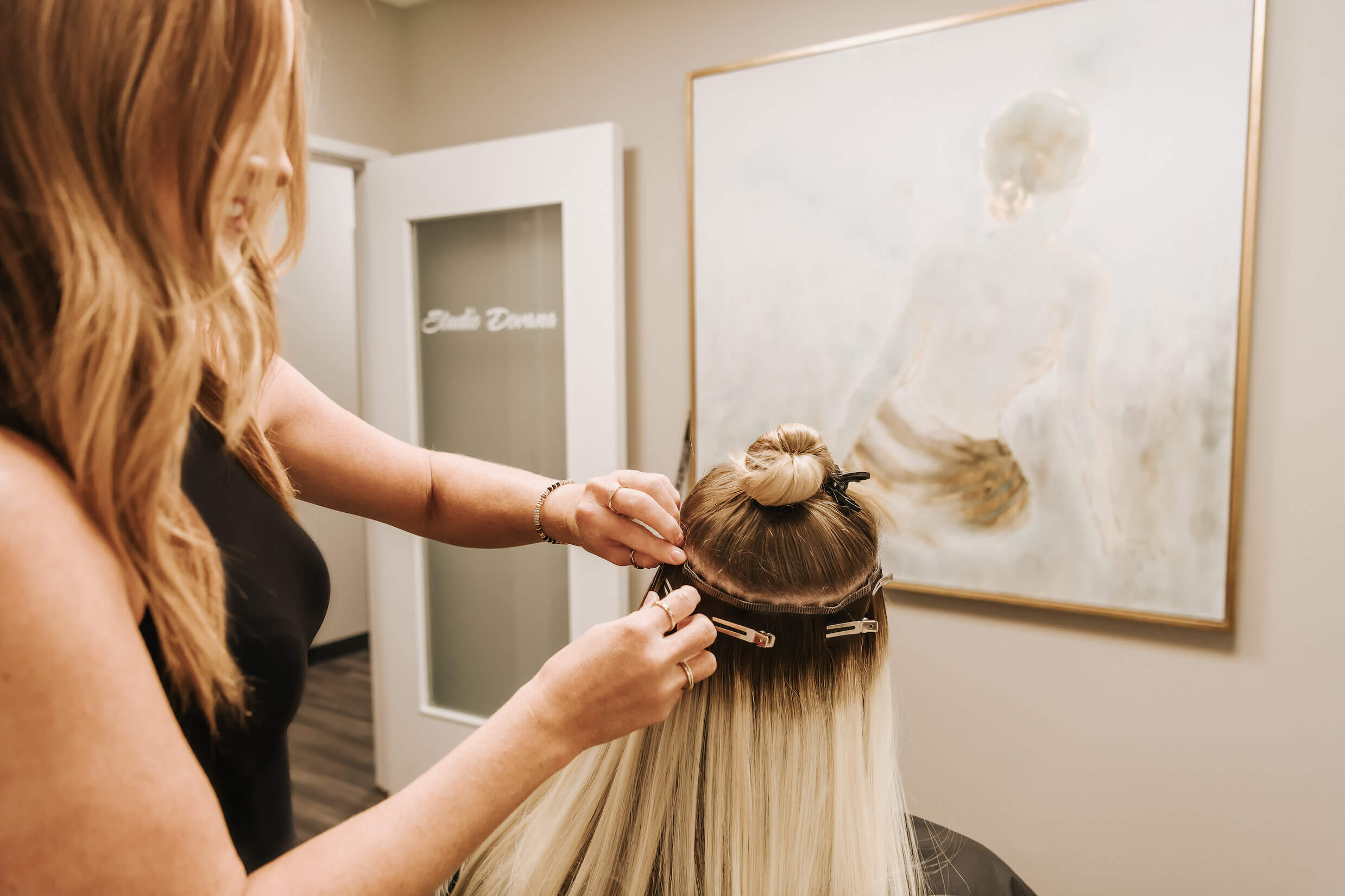
Your hair professional should make you aware of this and, in most cases, itchiness or inflammation should ease in a few days. However, if you are unlucky purchase low-quality hair extensions, they may contain chemicals or materials that can irritate the scalp, leading to itching and discomfort. So it’s important to purchase hair extensions from reputable hair vendors like AZ Hair to avoid this situation.
5. Build-up of Products
Hair products such as gels, hairsprays, or oils used in conjunction with the extensions can build up on the scalp, leading to itching and irritation.
6. Traction Alopecia
Constant pulling or tension from hair extensions can cause a condition known as traction alopecia, which can lead to itching, redness, and eventually hair loss in the affected areas. Wanna find the proper type of hair extensions for Alopecia? Find out now in our dedicated blog: Best Hair Extensions For Alopecia 2022.
II. What Are The Causes Of An Itchy Scalp?
At times, your extensions may not be the primary trigger for the issue; rather, they could exacerbate the discomfort of a dry or sensitive scalp originating from other sources. Several typical factors leading to dryness, itchiness, or irritation of the scalp comprise:
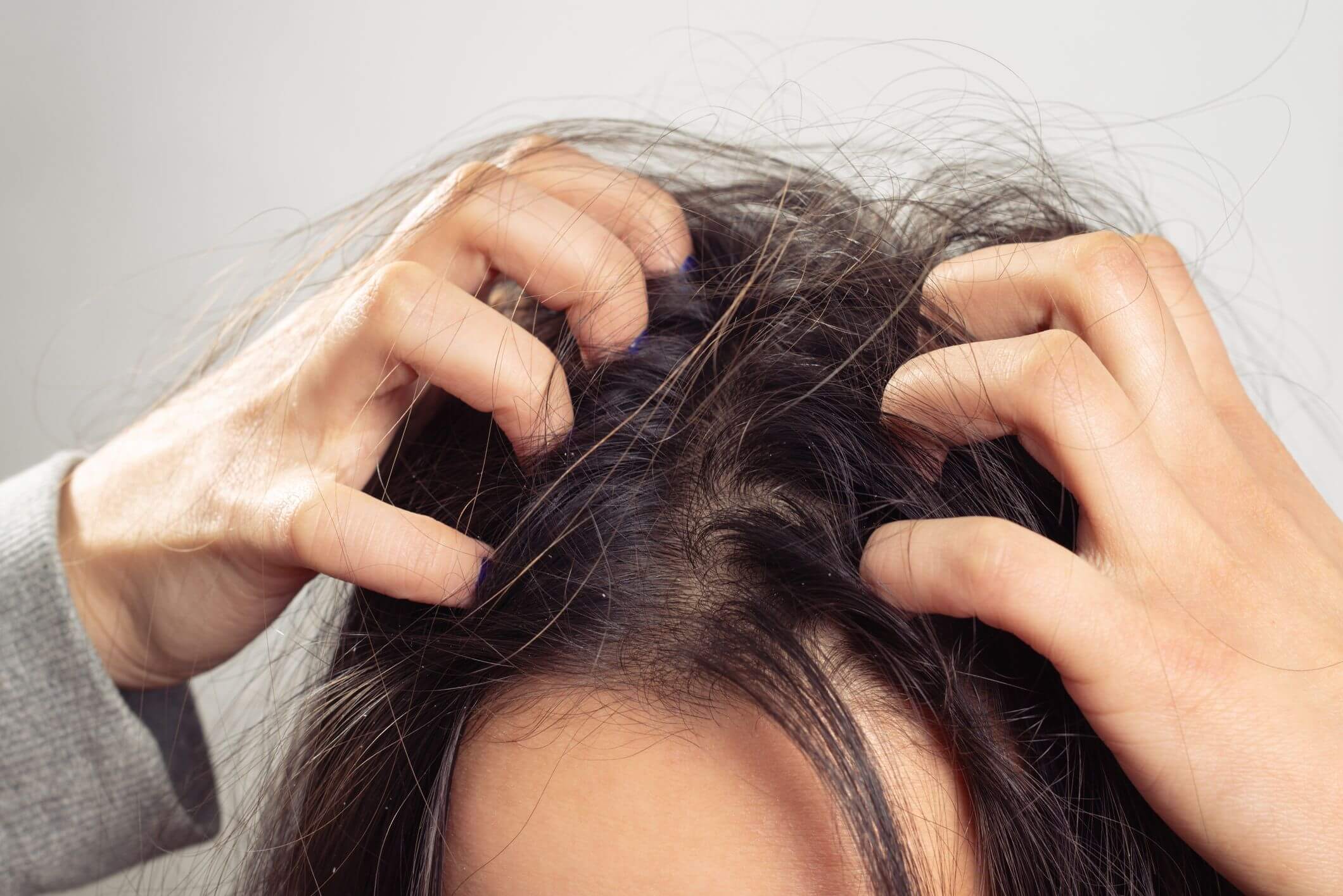
- Seborrheic Dermatitis: Typically caused by dandruff, this is one of the most common causes of an itchy scalp.
- Dry Scalp: Dryness can be caused by cold weather, overuse of shampoo and conditioning products, harsh leave-in products, dehydration, and more – stripping natural oils from the hair and scalp.
- Allergies: Unfortunately, it isn’t uncommon to have a sensitive scalp caused by allergies. Harsh products and chemicals can contain certain allergens that are known to aggravate sensitive skin.
- Excessive Sweating: Usually, sweating isn’t a problem for sensitive skin. However, excessive sweating means additional oils on the skin’s surface, making it a potential breeding ground for bacteria that irritate.
III. How Do You Treat An Itchy Scalp?
Itchy and flaky scalps are frustrating – especially when you’ve tried everything to get your hair looking its best and avoid dandruff buildup. Luckily, there are lots of effective at-home treatments to relieve itching, stop dandruff in its tracks, and keep your hair looking and feeling great without medication.
1. Use a Gentle Shampoo
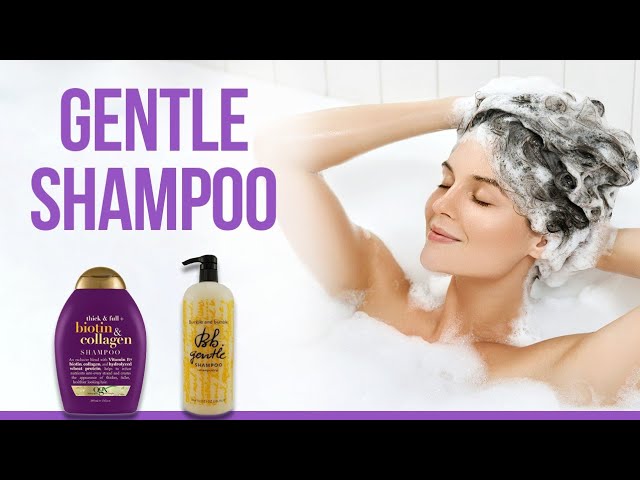
Choosing an extension-friendly, fragrance-free, or hypoallergenic shampoo offers a multitude of benefits beyond simply reducing exposure to harsh chemicals that may provoke or exacerbate irritation. These specialized shampoos are meticulously formulated to cater to sensitive scalps, ensuring a gentle and nurturing cleansing experience. Furthermore, these shampoos often boast additional nourishing ingredients such as botanical extracts or vitamins, enriching the hair and scalp with vital nutrients while maintaining a balanced pH level.
2. Maintain Good Scalp Hygiene
Wash your hair regularly with extension-friendly products to keep the buildups of debris, dirt, and sebum from wreaking havoc on your scalp (you can find out the best shampoo and conditioner for hair extensions HERE). Sebum and natural oils are important for hair and scalp health, though, so it’s important not to over-wash your hair.
3. Avoid Hot Water

Hot water may feel nice to bathe and shower in, but if it’s too hot, it can damage the sensitive skin on the scalp and worsen dryness and itching. It’s best to use warm water when cleansing your scalp.
4. Moisturise
Itchiness, dryness, and irritation are also caused when the scalp is very dry. Like all skin, when it’s dry, it needs moisture. Use a gentle, hydrating leave-in conditioner to lock in moisture.
5. Anti-Dandruff Shampoos
Dandruff can be a vicious cycle – it causes itchiness while scratching creates more dandruff. If you’re struggling, try anti-dandruff shampoos. These contain active ingredients like zinc pyrithione, selenium sulfide, ketoconazole, and salicylic acid, which are proven to help prevent dandruff and inflammation that cause itchiness.
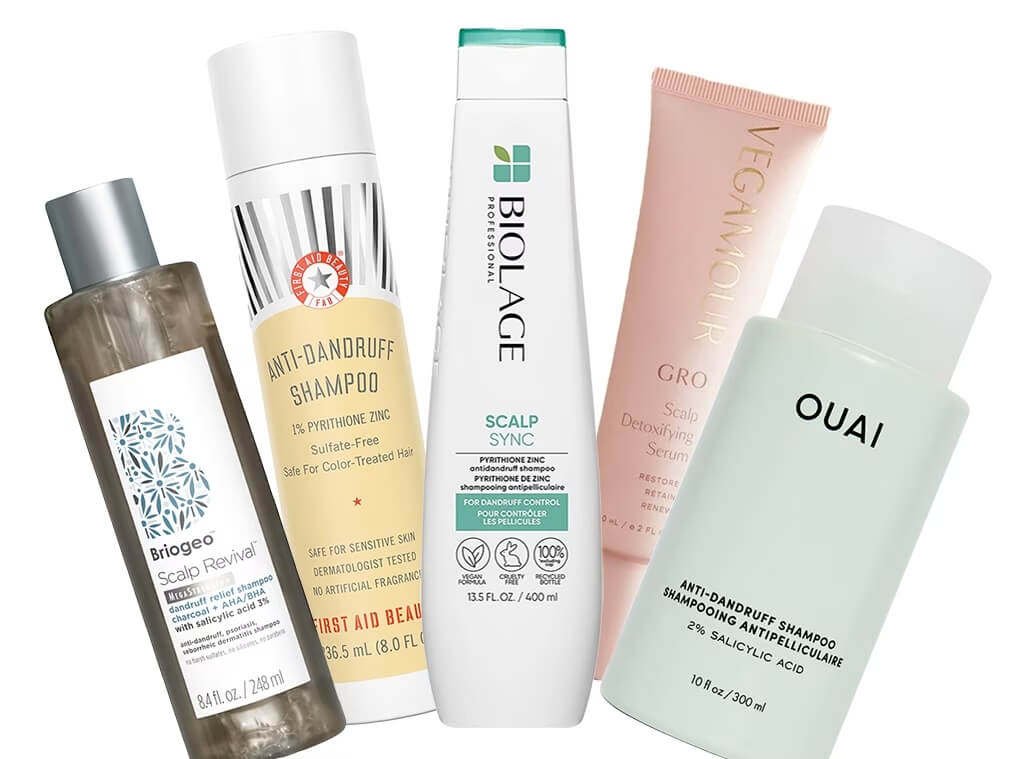
→ If you wanna find more about “Home Remedies for Itchy Scalp”, you can visit our dedicated blog shared about itchy scalp: Itchy Scalp: How To Prevent & Treatment?.
IV. Conclusion
In conclusion, if you’re experiencing an itchy scalp and suspect that your hair extensions causing, it’s essential to take action promptly. First and foremost, consult with a professional hairstylist or dermatologist to determine the root cause of your discomfort. They can provide personalized advice and recommendations tailored to your specific situation. Additionally, prioritize proper hair extension maintenance, including regular washing, conditioning, and avoiding excessive tension on the scalp. Opting for high-quality, hypoallergenic extensions and practicing good hygiene habits can also help alleviate itching and prevent further irritation. By staying proactive and informed, you can enjoy beautiful, comfortable hair extensions without sacrificing your scalp health.


 BEST SELLING PRODUCTS
BEST SELLING PRODUCTS Wig Hair
Wig Hair WHOLESALE
WHOLESALE Contact us
Contact us Sale Events
Sale Events